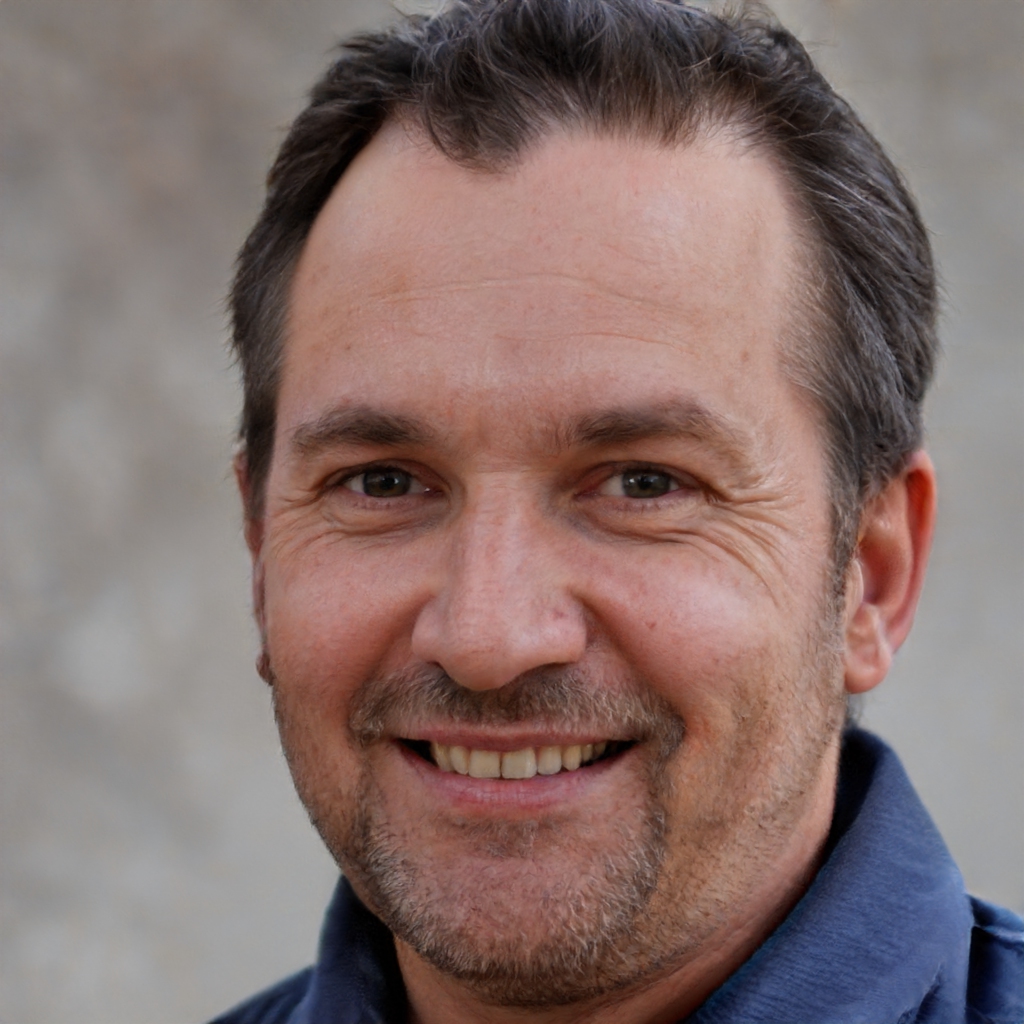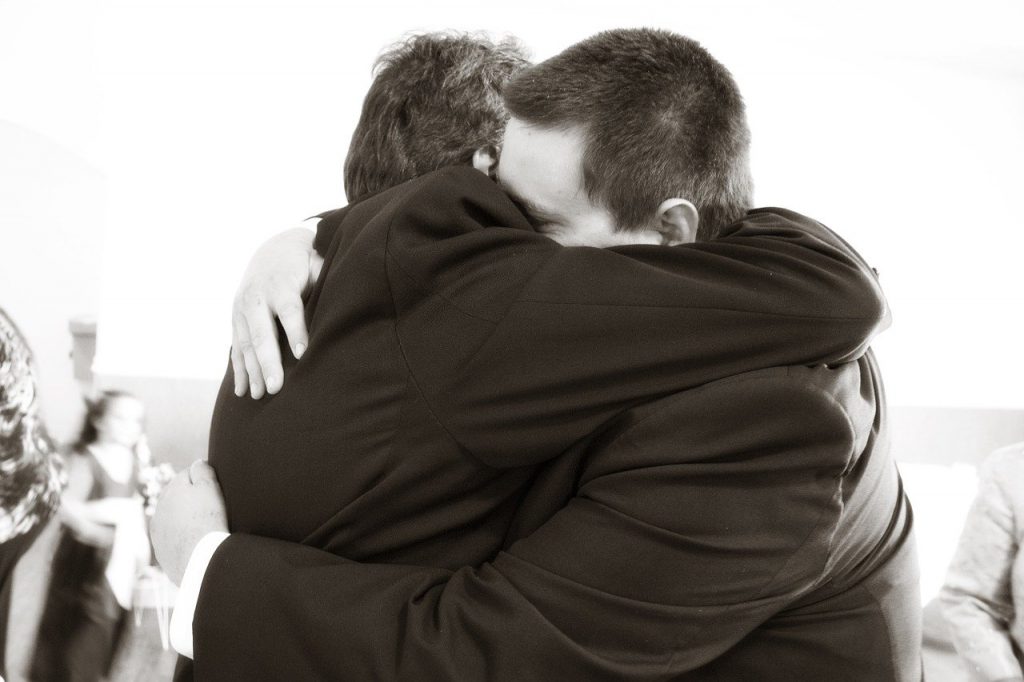How Faith Can Heal A Lost Soul In 10 Practical Steps
Learn 10 practical steps to reclaim hope and heal a lost soul through faith. Find strength, purpose, and inner peace with actionable guidance.
Author:Bernard HorneFeb 21, 202531 Shares7.7K Views

The soft glow of dawn was breaking through Sarah's window, but she felt nothing. Despite her successful career and loving family, an overwhelming emptiness had taken root in her soul. "I remember staring at my reflection one morning, wondering how I'd lost myself so completely," she shares.
Like countless others walking through life with a profound sense of disconnection, Sarah stood at a crossroads; until she realised the transformative power of faith. Recent studies reveal that 68% of individuals who embrace spiritual practices report finding their way back from similar feelings of loss and disconnection.
Faith, extending beyond religious boundaries, offers a proven path to rediscovering purpose, meaning, and most importantly hope. Through centuries of human experience and modern scientific research, we now understand that healing a lost soul isn't just possible; it's a journey that millions have successfully navigated through faith.
The Nature Of A Lost Soul
A lost soul carries a unique kind of pain; one that often goes unnamed and unrecognized in our modern society. This spiritual disconnection manifests in various ways, creating a profound impact on an individual's entire being. Many describe it as walking through life with a persistent sense of emptiness, despite external success or achievements.
The signs of spiritual disconnection often appear subtly at first. You might experience a deep sense of purposelessness, question the meaning of your existence, or feel emotionally numb to life's experiences. Physical symptoms can accompany this spiritual void chronic fatigue, unexplained anxiety, or a general sense of being unwell despite medical clearance.
This state of being lost affects not just the individual but ripples through relationships, career choices, and daily decisions. Without a spiritual anchor, many find themselves drifting through life, making choices based on external expectations rather than inner truth.
Spiritual Health Self-Assessment
- Do you often feel emotionally numb despite external success?
- Is there a persistent sense of emptiness in your daily life?
- Do you question your life's purpose frequently?
- Are you struggling to find meaning in your achievements?
- Do you feel disconnected from yourself and others?
If you answered "yes" to three or more questions, you might be experiencing spiritual disconnection.
The Healing Power Of Faith
Faith transcends religious boundaries and denominational differences. At its core, faith represents a profound trust in something greater than ourselves, whether that's a higher power, the underlying goodness of the universe or the interconnectedness of all beings. This fundamental trust serves as the foundation for spiritual healing.
Research in neuropsychology supports the healing potential of faith. Studies show that spiritual practices activate areas of the brain associated with positive emotions and peaceful states of mind. The Journal of Religion and Health has published numerous studies linking faith to improved mental health outcomes, faster recovery from illness, and greater resilience in facing life's challenges.
The psychological benefits of faith extend beyond mere comfort. Faith provides a framework for understanding suffering, offers tools for personal transformation, and creates a sense of belonging to something greater than oneself. This combination of elements creates powerful conditions for healing and growth.
The Science Behind Spiritual Healing
Research in neuroscience has unveiled remarkable connections between faith and brain function. Studies using fMRI scanning reveal that spiritual practices activate the prefrontal cortex, associated with:
- Improved emotional regulation
- Enhanced decision-making capacity
- Increased sense of purpose and meaning
- Reduced anxiety and depression
- Strengthened resilience
Dr. James Thompson of the Neural Integration Research Institute explains: "Faith practices create new neural pathways that promote emotional stability and psychological well-being. It's not just about belief - it's about rewiring the brain for healing."
Pathways To Spiritual Healing Through Faith
1. Self-reflection And Inner Work
The journey begins with honest self-examination. Take time daily for quiet contemplation, journaling, or meditation. Listen to the whispers of your soul and acknowledge the areas of your life that need healing. This internal dialogue creates space for spiritual growth and understanding.
2. Building A Spiritual Practice
Develop rituals that nurture your faith. This might involve prayer, meditation, reading sacred texts, or spending time in nature. The key is consistency and sincerity in your practice. Start small even five minutes of daily devotional time can create significant change over time.
3. Connecting With Community
Healing rarely happens in isolation. Find people who share your spiritual valuesand can support your journey. This might mean joining a religious congregation, participating in spiritual retreats, or forming a small study group focused on spiritual growth.
4. Finding Purpose Through Beliefs
Faith provides a framework for understanding your place in the universe. Through this lens, you can discover your unique purpose and contributions to the world. This sense of purpose becomes a powerful force for healing and transformation.
5. Practicing Forgiveness
Forgiveness is essential for spiritual healing. Start with self-forgiveness, acknowledging past mistakes while believing in your capacity for growth. Extend forgiveness to others, not to condone their actions, but to free yourself from the burden of resentment.
6. Cultivating Gratitude
Develop a daily gratitude practice. Notice the small blessings, acknowledge the good in your life, and maintain perspective during difficult times. Gratitude shifts focus from what's missing to what's present, creating space for healing.
7. Embracing Transformation
Allow faith to transform you gradually. Accept that healing is a process, not an event. Celebrate small victories and maintain patience with yourself as you grow and change.
8. Reconnect With Spiritual Practices
Engaging in spiritual practices like prayer, meditation, or journaling can create a sense of connection and peace. These practices encourage mindfulness and help focus on the present moment, reducing anxiety and fostering a sense of calm.
9. Find Guidance From Mentors Or Leaders
Connecting with spiritual leaders, mentors, or counselors can provide clarity and encouragement. These individuals can offer insights, share wisdom, and help guide you on your journey toward healing.
10. Service And Giving
Transform healing into action through service. Helping otherscreates meaning and accelerates personal growth.
Service Opportunities:
- Volunteer at local organizations
- Mentor others on their journey
- Share your story to inspire hope
- Offer practical help to those in need
- Create support groups
Ways Faith Can Help Heal A Lost Soul
1. Restoring Hope And Purpose
Faith has an innate ability to instill hope. When life feels overwhelming, believing in a higher power or purpose can provide the motivation to move forward. This sense of purpose often serves as a compass, guiding individuals toward meaningful actions and decisions that bring fulfillment.
2. Encouraging Self-Reflection And Growth
Faith often encourages introspection, prompting individuals to evaluate their choices, beliefs, and behaviors. This process of self-reflection can lead to personal growth and transformation. It allows a person to identify areas of their life that need healing while fostering a deeper understanding of themselves and their values.
3. Building A Supportive Community
One of faith’s greatest gifts is the sense of community it can provide. Faith-based groups and gatherings offer support, encouragement, and a sense of belonging. Being surrounded by people who share similar values and beliefs creates a safety net, making it easier to navigate life’s challenges.
4. Providing Strength In Adversity
The rituals and practices associated with faith, such as prayer, meditation, or attending services, often provide a sense of calm and reassurance. These practices can help individuals find inner strength, especially when facing adversity. Faith reminds us that we are never truly alone and that challenges are part of a larger journey.
Overcoming Obstacles In The Spiritual Journey
The path of faith-based healing isn't always smooth. Doubt, fear, and past trauma can create significant roadblocks. Acknowledge these challenges without letting them derail your progress. Remember that questioning and uncertainty are natural parts of spiritual growth.
During such times, reflecting on how to survive in Lost Lifecan provide valuable insights, helping you see obstacles as opportunities for growth. Work with your doubts rather than against them. Each challenge offers a chance to deepen your faith and understanding. When facing difficulties, return to your spiritual practices and lean on your support community.
Creating A Personal Faith Practice
Developing a sustainable faith practice requires thoughtful integration into daily life. Follow these steps carefully to keep a spiritual journal to track your growth and insights.
Daily Faith Integration Framework
Morning Centering (15 Minutes)
- Meditation or prayer
- Sacred reading
- Intention setting
Midday Pause (5 Minutes)
- Breath awareness
- Gratitude practice
- Purpose reminder
Evening Reflection (10 Minutes)
- Journal writing
- Wisdom gathering
- Tomorrow's preparation
Growth Tracking Tool
Monitor your spiritual development.
Weekly Check-in Questions:
- How has my faith deepened this week?
- What challenges tested my spiritual strength?
- Where did I experience divine guidance?
- How did I serve others?
- What new insights emerged?
Expert Insights
Dr. Sarah Winters, Religious Studies Professor at Columbia University, explains: "Faith healing works because it addresses the root cause of spiritual disconnection - the separation from our essential nature and higher purpose."
Clinical Psychologist Dr. Michael Chenadds: "When we integrate faith into healing, we tap into humanity's oldest and most powerful resource for transformation."
Practical Tools For Your Journey
Meditation Script - Coming Home To Faith
Find a quiet space and follow this guided practice:
- Settle into a comfortable position
- Take three deep, cleansing breaths
- Imagine light filling your heart
- Feel your connection to the divine
- Rest in sacred presence for 10 minutes
Journal Prompts For Spiritual Growth
Morning Questions:
- What gives my life meaning today?
- How can I serve others?
- Where do I need guidance?
Evening Reflection:
- What blessed me today?
- How did I grow spiritually?
- What wisdom did I gain?
FAQs
How Long Does Spiritual Healing Take?
Spiritual healing is a highly individual process without a fixed timeline. Some experience significant shifts in weeks, while others find healing unfolds over years. The key is maintaining consistency in your spiritual practice while being patient with the process.
Can Faith Heal Depression?
While faith can be a powerful support in managing depression, it works best alongside professional mental health care when needed. Faith provides hope, meaning, and community support, which complement medical treatment for depression.
Is Religious Belief Necessary For Spiritual Healing?
No, spiritual healing can occur within or outside formal religious traditions. What matters is developing a genuine connection to something greater than yourself and finding practices that resonate with your personal beliefs.
What Does Faith Have To Do With Our Suffering?
Our faith grows through suffering because it encourages us to identify with Christ and his suffering, leads us to see the hand of God in our lives, and it gives us the language we need to come alongside others in their journey.
Can Forgiveness Really Help Heal My Soul?
Yes, forgiveness is an essential part of healing. By forgiving yourself and others, you free yourself from the burden of anger and resentment, allowing space for peace and healing.
Final Thoughts
The journey of healing through faith transforms a lost soul into one that's whole, purposeful, and at peace. This transformation doesn't erase life's challenges, but it provides the strength, wisdom, and support needed to navigate them with grace.
Remember that your spiritual journey is uniquely yours. Trust in the process, maintain consistency in your practice, and remain open to the ways faith can heal and transform your life. Each step forward, no matter how small, brings you closer to the wholeness you seek.

Bernard Horne
Author
In this signature of the father, Jesus, and the holy spirit. Exploring how God’s Word challenges us to live 100% according to His will so that we can come to a life of victory!
Latest Articles
Popular Articles



